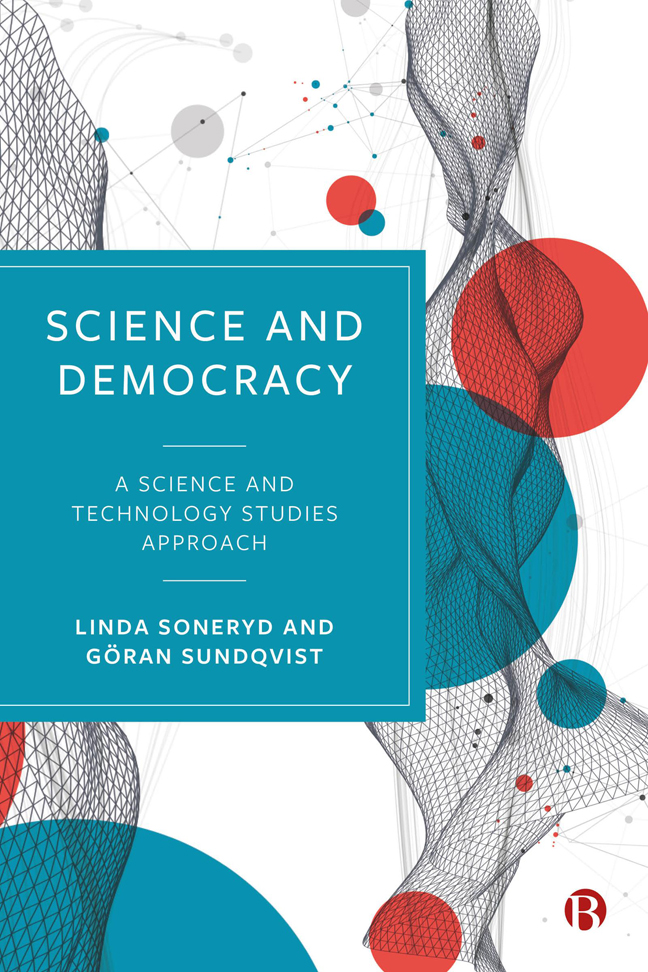Preface
Published online by Cambridge University Press: 23 January 2024
Summary
This book does two things: it introduces the field of science and technology studies (STS) and discusses science and democracy through an STS approach. This double aim of the book means the book is an introduction to STS with a specific focus.
STS is a lively international and interdisciplinary research field. Despite the heterogeneity of STS as a research field, scholars within STS share some common theoretical grounds. What holds STS together is an understanding of knowledge, especially scientific knowledge, as practice in which actors’ interpretations, judgments, and actions lead to results that can be perceived as robust and true knowledge. The authority of knowledge, or truth, is not something that exists from the beginning, but is the result of processes in which many actors participate. It is these processes of emergence that are of interest to all STS researchers.
The research field has several roots, both academic and more social and political. Academically, the scientific theoretical discussion in the wake of Thomas Kuhn's book The Structure of Scientific Revolutions (published in 1962, with an important second edition in 1970) has been central. Questions about paradigms, paradigm conflicts and paradigm changes have had great significance outside the world of research as well. These debates led to a return to the classical sociology of knowledge, which was an important part of the emergence of sociology at the turn of the last century and whose tools could now be used with new energy to understand not only religious beliefs, political ideologies and everyday knowledge (folk beliefs) but also scientific knowledge. Scientific knowledge is not dramatically different from other forms of knowledge, and it can be sociologically understood in the same way: as anchored in a particular context, shaped by time and place, and by different interests and actor strategies. But despite these similarities, scientific knowledge can also be very different from other forms of knowledge.
In this book, we take as our starting point the principle that legitimizes science in modern society and makes it different from other knowledge forms, and this principle is also what science and democracy have in common. The principle shared by science and democracy is that their authority is not gained through violence. Rather their authority is based on the principle that they can always be questioned and revised.
- Type
- Chapter
- Information
- Science and DemocracyA Science and Technology Studies Approach, pp. iv - viiiPublisher: Bristol University PressPrint publication year: 2023

